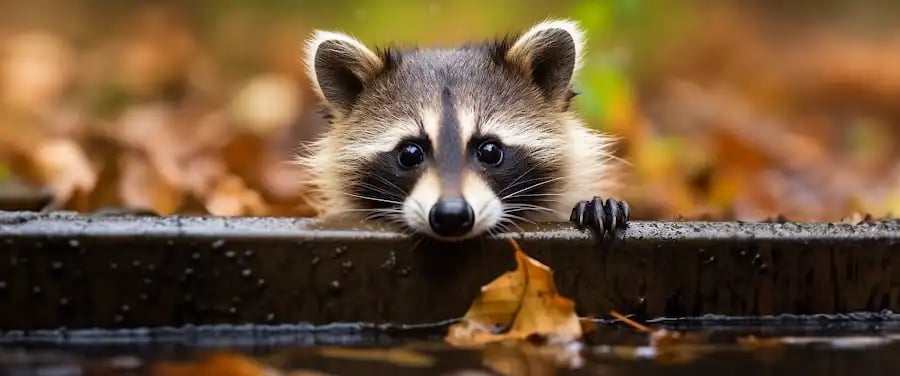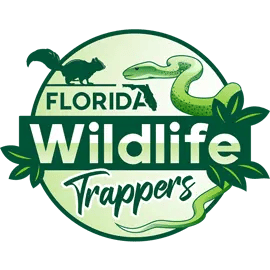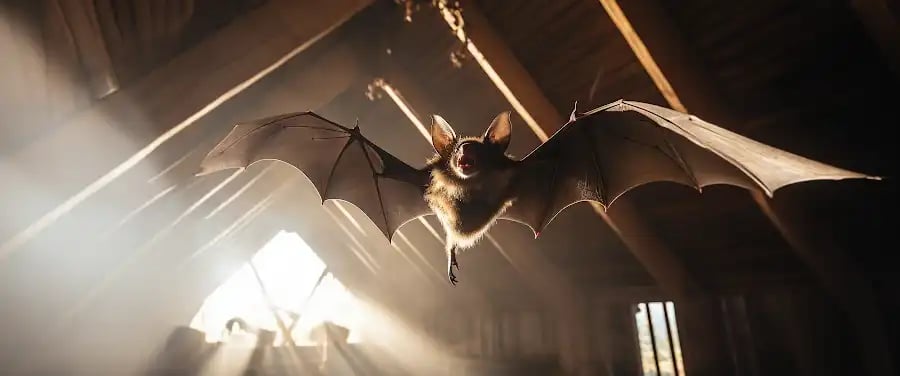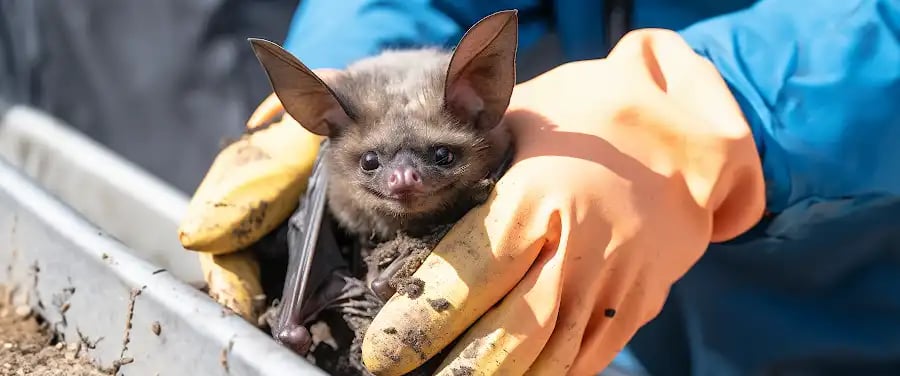
If you’ve ever experience a rustling in your attic or the clattering of garbage cans in the middle of the night, then you’re probably familiar with the culprit – a mischievous raccoon foraging for food. Delighting and infuriating homeowners in equal measure, these critters bring the wild right to your doorstep. But before you march, broom in hand, to chase them off your property, it’s crucial to know there are specific laws and regulations on raccoon removal that must be adhered to in Central Florida. Residence in this area, the legalities surrounding raccoon control may surprise you.
From a perky face popping out of a storm drain to a fur ball scurrying up a tree, raccoons have become a familiar sight in our urban landscapes. Their adaptability to human settlements has resulted in escalating conflicts between homeowners and these far too intelligent, striped-tailed, night time prowlers. However, bear in mind, these animals are a part of the wildlife we cohabitate with, and there are sanctioned methods of resolving nuisance issues. Understanding raccoon control laws and permits isn’t only about legalities but also respecting the delicate balance of wildlife among us.
The implications of these laws go beyond just the homeowner’s convenience. It’s about maintaining a balance in the ecosystem, regulating potential disease spread, and respecting these animals’ rights. All these regulations drive us to examine our interactions with our environment and the wildlife living in it. In the coming sections of this article, we aim to enlighten you on these laws, permits required for removing raccoons, and nuisance laws surrounding wildlife control. We hope this article encourages you to appreciate the significance of raccoon control, and aids in creating a healthy coexistence between humans and wildlife. So, let’s dive into understanding what exactly raccoon control is.
What are Wildlife Nuisance Laws?

The term ‘wildlife nuisance laws’ usually refers to legal provisions that govern the management of wildlife creatures, especially those that prove problematic to human activities or property. Typically, these laws have been enacted to secure an equilibrium between human activities and wildlife. Specifically, they regulate human activities impacting the well-being of wildlife, and vice-versa. Now, how do these nuisance laws relate to raccoons, you may ask?
Well, raccoons often have run-ins with humans primarily because of their adaptive nature. Seemingly harmless, these curious creatures can cause a whole host of issues, from rummaging through trash cans to making a home in your attic. This behavior, while natural to them, can be quite problematic for homeowners – prompting the application of the nuisance laws to help manage human-raccoon interactions.
In the context of Central Florida, these wildlife nuisance laws dictate that when dealing with raccoons, one must strive to use humane methods. Indeed, it’s prohibited by law to mistreat, harm, or kill these animals without a proper permit. It’s crucial at this juncture to transition into the next part of our discussion: specific laws governing raccoon removal.
What Laws Govern Raccoon Removal?
In Central Florida, the management and removal of raccoons falls under the jurisdiction of the Florida Fish and Wildlife Conservation Commission (FWC). There are a plethora of rules and regulations in place to manage and control raccoon populations, all of which adhere to national standards.
First, you should know that in Florida, raccoons are classified as fur-bearing animals. As such, these creatures are accorded certain protections, and it’s illegal to capture or kill them without a proper license or permit. Therefore, raccoon removal or relocation must be done with all due respect to the animal’s well-being, or you risk running afoul of the law.
Here’s a quick rundown of some of the regulations:
- No one can poison a raccoon: Raccoons are protected under the secondary poisoning act, which means they can’t be intentionally poisoned.
- Relocation must be within the same county: Once trapped, the raccoon should be released within the same county of capture to avoid the spread of diseases.
- Use of humane traps: In the event of trapping, property owners should use live or humane traps, and never leg-hold traps.
Moreover, Florida law prohibits the “take” of raccoons throughout the year in certain counties, meaning you’ll need to obtain a special permit to remove raccoons during off-seasons. With these laws and guidelines in place, it’s clear that dealing with raccoon removal isn’t a do-it-yourself job. It requires a professional wildlife control operator who understands the laws and consequently knows what is permissible when dealing with these creatures.
But how do these regulations translate into practice?
| Scenario | Legal action | Reason |
|---|---|---|
| A raccoon in your attic | Call a licensed wildlife remover | Requires careful, humane removal |
| A raccoon rummaging through your trash at night | Secure your trash can | Prevents problems with raccoons and other wildlife |
| Raccoon damaging your property | Obtain a permit and call a professional | Necessary because of the damage permit requirements |
In essence, wildlife nuisance laws, especially those regarding raccoon laws, provide a platform for executing humane control and management of these creatures in Central Florida. As such, one must abide while enjoying and coexisting with nature.
Tackling raccoon problems can be quite a challenge, especially given their protected status. Therefore, understanding your duties and the rights of these animals goes a long way in promoting a harmonious existence. With the nuisance laws application playing an integral role, ensuring compliance becomes substantially beneficial. The next question then looms, what permits are needed for raccoon removal?
What Laws Govern Raccoon Removal?

Wildlife management and protection are crucial societal responsibilities, and for good reason. When it comes to managing creatures like raccoons, there are various raccoon removal laws in place. Both federal and state laws, along with local regulations, dictate how raccoons may be dealt with. Remarkably, these laws can differ quite significantly, mainly between states and even different localities within the states.
Federal Laws on Raccoon Removal
Under federal regulations, raccoons are not labelled as endangered species, which means each state has its terrain to decide on their management. However, each of the federal regulations under the United States Department of Agriculture, especially the Animal and Plant Health Inspection Service promotes humane trapping and removal techniques.
State Laws on Raccoon Removal
When we drill down to the state level, things can get pretty diverse. For instance, in Central Florida, the Florida Fish and Wildlife Conservation Commission (FWC) is tasked with overseeing raccoon removal activities. It’s essential to check the specific laws in your area as ignorance is never a solid defence in legal matters.
Florida’s Regulations allow for the removal of nuisance raccoons by homeowners without a permit. However, the FWC insists that they must be released on the same contiguous property where they were caught or euthanized humanely.
| State | Is Raccoon Trapping Allowed? | Is Relocation Permitted? |
|---|---|---|
| Georgia | Yes, with a permit | No |
| Florida | Yes, without a permit | Must be on same property |
| Texas | Yes, without a permit | Yes |
| California | No, unless licensed | No |
Local Ordinances on Raccoon Removal
At the local level, ordinances can introduce additional requirements or restrictions. For example, certain cities may have regulations preventing specific removal methods, while others may entirely prohibit raccoon trapping.
Understanding the ins and outs of raccoon removal laws can be complex. Still, it’s essential information for homeowners dealing with these pesky critters. Always consider asking for professional help when dealing with raccoons to ensure you’re in accordance with local and federal laws.
In conclusion, the governing regulations of raccoon removal are a perfect example of how laws fluctuate across different levels. Stay tuned to discover the legal methods of raccoon removal and further unravel this interesting topic.
To give you an idea of the average costs and types of damage associated with rodent infestations, have a look at the following table:
What are the Legal Methods of Raccoon Removal?

If you have been perturbed by raccoons rifling through your garbage or causing havoc in your yard in Central Florida, then you have probably pondered on ways to get rid of them. However, it’s essential to bear in mind that not all methods of raccoon removal merit equal approval from the law.
Established “laws and regulations on raccoon removal”, whether it involves catching, euthanizing, or relocating raccoons, direct homeowners to accord these creatures the respect and decency they deserve as sentient beings.
Information on Statutory Trapping Methods
n accordance with state regulations, legal raccoon removal requires using live traps. The Florida Fish and Wildlife Conservation Commission (FWC) emphasizes that trapped raccoons should not be subjected to inhumane treatment.
In-detail Description of Authorized Raccoon Euthanasia Methods
In situations where euthanasia becomes the considered action, it is essential to follow legal procedures. The American Veterinary Medical Association (AVMA) guidelines are generally accepted as the standard for humane euthanasia. Some euthanasia methods include injection of euthanasia drugs, using carbon dioxide chambers, or shooting when performed by skilled personnel and in situations where other methods aren’t feasible. Please remember, these procedures should only be performed by licensed professionals.
Laws and Regulations on Raccoon Relocation
When it comes to relocation laws, raccoons captured on your property must not be released elsewhere. These regulations aim to stop the spread of diseases raccoons may carry from one area to another. Repositioning a raccoon within the same property or placing them in a licensed wildlife rehabilitation center are acceptable practices under the FWC guidelines.
Remember, understanding and following these rules can help you navigate the predicament of a raccoon infestation in a lawful and respectful manner. Familiarize yourself with these laws and, if in doubt, consult with the FWC or a local animal control organization.
With adequate knowledge, necessary permits in hand, and mindful of the regulations on raccoon removal, you can effectively address the nuisance caused by raccoons. Keep scrolling to know more about the permits required for raccoon control.
What Permits are Needed for Raccoon Control?

In Central Florida, it’s common to find raccoons scavenging around your property, especially if you live in areas close to their natural habitats. However, did you know that it isn’t as simple as just wanting to chase them away or handle their removal on your own? It’s crucial to understand that there are strict laws and regulations on raccoon removal and they often involve a wildlife control permit.
Anyone in Central Florida who wishes to engage in raccoon control activities must have the necessary wildlife control permit issued by the Florida Fish and Wildlife Conservation Commission. This is not just for wildlife control businesses but also for homeowners who might consider attempting raccoon removal themselves for the sake of their property’s peace and safety.
Applying for a permit involves completing a permit application form available on the official website of the Florida Fish and Wildlife Conservation Commission. The application has clear guidelines and procedures outlining how to go about safely and humanely controlling and removing raccoons.
Don’t underestimate the authorities there, they aren’t lenient on unauthorized raccoon removal penalties. Violating laws surrounding wildlife control can result in hefty fines, and even imprisonment in extreme cases. The Florida Fish and Wildlife Conservation Commission reported that in 2020, they issued over 200 penalties for illegal wildlife control activities. This goes to show the severity of mismanaging wildlife, particularly the raccoon population.
Remember, when it comes to raccoon control, the best approach is always to comply with local laws and regulations. As stated by the Humane Society, “Choose peace with wildlife. Act responsibly”. So, if you ever encounter any raccoons, remember to follow the proper procedure to ensure not just your safety, but also the well-being of the wildlife.
With all these regulations in mind, you might start asking yourself, “How exactly does one professionally handle raccoon removal?” Let’s dive deeper into that in the next segment.
Conclusion
In our journey to understand the laws and regulations on raccoon removal in Central Florida, one thing is clear – knowledge is power. Understanding these regulations is not only crucial for the welfare of our homes but, more importantly, for the balance of our ecosystem.
Indeed, raccoons can be a real nuisance. Their tendency to infiltrate attics, garages, and trash bins can make them unwelcome visitors to our homes. Nevertheless, it’s important to remember that these agile creatures are integral parts of our wildlife.
The laws and regulations we’ve discussed aim to facilitate a respectful, non-harmful approach to raccoon control. Understanding just how vital these regulations are should alter how we handle these furry invaders, encouraging more responsible actions.
We also need to remember that raccoon bears are protected wildlife in many states. In Florida, where raccoons are deemed a nuisance due to their large population, a permit is needed to trap or remove them from your property legally – a key aspect we explored in detail.
Understanding and applying these regulations offer us a win-win situation. Not only do we maintain the sanity of our homes, but we also contribute to wildlife conservation. Therefore, remember, the next time you spot a raccoon scurrying across your yard, know that you have the knowledge, the power, and the responsibility to handle it correctly.
To conclude our deep dive, laws and regulations on raccoon removal are there to protect both humans and wildlife. By learning these rules, we maintain a kind and respectful balance between the rights of homeowners and the animals that are also part of our neighborhoods.
So, let’s embrace these regulations, apply them responsibly, and in doing so, contribute to a sustainable coexistence. Can there be a better final thought?
Remember, it’s our homes, it’s our wildlife, and these are our regulations. And in striking this balance, we guarantee a safer and more harmonious existence for all.
Let’s work towards removing the nuisance while preserving nature. Remember, it all starts with understanding and following the laws and regulations on raccoon removal.



